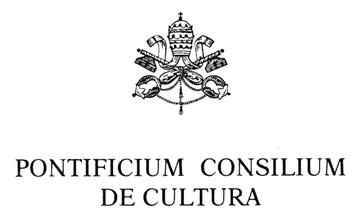byEcce Fides: Pillar of Truth
Fr. John Pasquini
Shepherds of Christ MinistriesINTRODUCTION
by His Eminence Paul Cardinal Poupard
Of vital importance for evangelization is an awareness of the cultures in which people live, shape their thinking, develop their lifestyles, and seek to grow in their humanity. In our task of spreading the Good News we are called on to read the signs of the times and renew the way we participate in the Church’s evangelizing mission, adapting to the new situations emerging in our continually changing cultures. But as cultures and currents of thought are fickle, changing under influences both good and bad, it is important for us to remain focused on the fullness of our faith if we are to carry out our mission as Christians, the great commandment to go out and preach the good news to all the peoples. Our faith, revealed in biblical culture, further understood through 2000 years of changing cultures, remains our response to the same Good News, the Gospel, the story of salvation in which God sent his Son to redeem the world through his birth, death, and resurrection. Through the Church, the bride of Christ, his light shines visibly to all men; by the power of the Spirit, in the sacraments instituted by Christ and entrusted to the Church, we can be healed and transformed, conformed to the same Son of God in preparation for eternal life. This is the truth we need to hear, meet, interiorize, and live out in conversion to God’s own Divine will.
The Church is the custodian of the Good News and is also described by my patron, St Paul, in his letter to Timothy, as the pillar of truth, the subtitle of this useful catechetical book. The same Apostle to the gentiles took his missionary zeal from his awareness that ours is not a faith limited to its Hebrew roots, but contains within it a zeal to engage in a dynamic and salvific encounter with all cultures, for, as John Paul II would later proclaim magisterially, “a faith that does not become culture, is a faith which is not fully thought through, not truly lived out and not faithfully lived” (John Paul II, Letter creating the Pontifical Council for Culture, 20 May 1982). The Church is also expert in humanity, it safeguards the truth, not as a treasure hidden under a lampshade or in a bushel, but as an announcement
for all humanity. Contrary to the characteristics of many sects and new alternative religions springing up today, the Church’s essential truth is no secret, but a series of historical events that we need to proclaim in a way our contemporaries can access, ad modum recipientis as I was taught in seminary. We seek to hand this faith on to new generations with new energy, new ardour, and daring a new creativity in charity (cf. Novo Millennio Ineunte). And let us add, with a word characterizing Benedict XVI’s Pontificate, joyfully.Following the paradigm of the Incarnation, wherein God became Man for our sake, the light of truth, takes on the form and fullness of cultures, not to glory in its sinful nature, but to transform them anew in order to reconcile men with each other, recreating them in the image and likeness of the new Adam. The meeting between the one faith and the many cultures is fundamentally at the service of this new Christian humanism, which is why “the split between the Gospel and culture is the drama of our times” as Pope Paul VI stated in the Apostolic Exhortation,
Evangelii Nuntiandi 1975. Pope John Paul II also described how “the future of man depends on culture”, which is not mere neutral context, but the battleground for the new evangelization. He set out our task thus: “In fact, we have to reach out to people where they are, with their worries and questions, to help them find the moral and spiritual landmarks they need to live lives worthy of our specific vocation, and to find in Christ’s call the hope that does not disappoint (cf. Rom 5,5), as we follow the method used by the Apostle Paul at the Areopagus in Athens (Acts 17, 22-34).” (Discourse to the Plenary Assembly of the Pontifical Council for Culture, 16 March 2002).In Europe we have noticed a resurgence in interest in religious matters in the public sphere, but sadly this has coincided with a spread of religious ignorance. This has led to a new thirst that is more spiritual than religious, by which I mean that people are seeking something beyond materialism, but without engaging with the reality of the Church, ecclesial traditions, and the historical events to which She witnesses, the very ways God has chosen to reveal Himself and transform us. This is also a time in which sociologists speak of a disaffection with institutions and the phenomenon of believing without belonging, the sort of insipid relativist belief that shirks the challenge of objective truth (see my work,
Where is your God? Chicago 2004). I note too how many western cultures are invaded by consumerism and individualism, trends that through globalization are spreading throughout the world. So it is important that as Church, as family, sustaining each other, and, in particular, praying for each other as the Association Shepherds of Christ does, that we return to the source of life, our faith, which is usefully exposed in this volume, and take it out to our contemporaries, evangelizing them and their cultures and inculturating the Gospel, with the humility to remember that it is the Holy Spirit who is the principle agent of the new evangelization. Let all who thirst come to the water and find a water that is truly satisfying!
Paul Cardinal Poupard
President of the Pontifical Council for Culture

